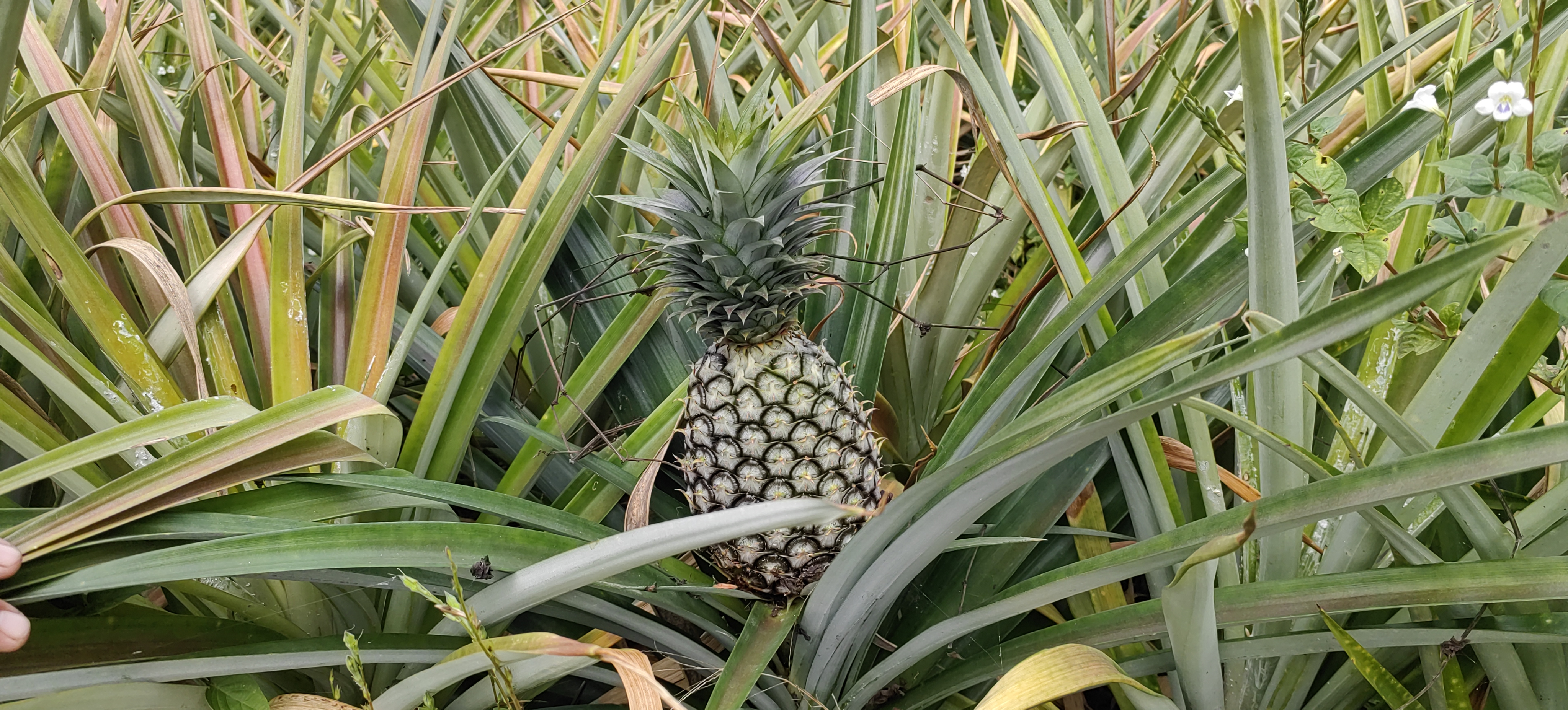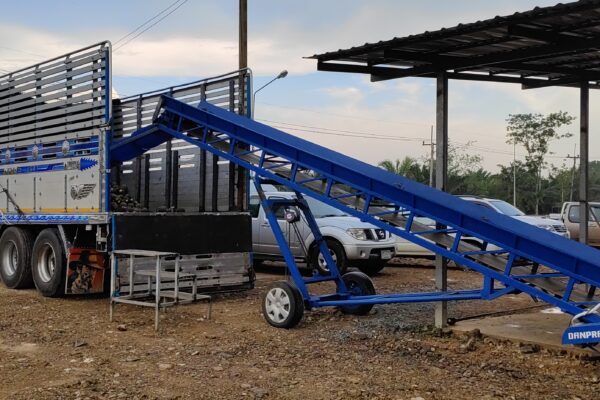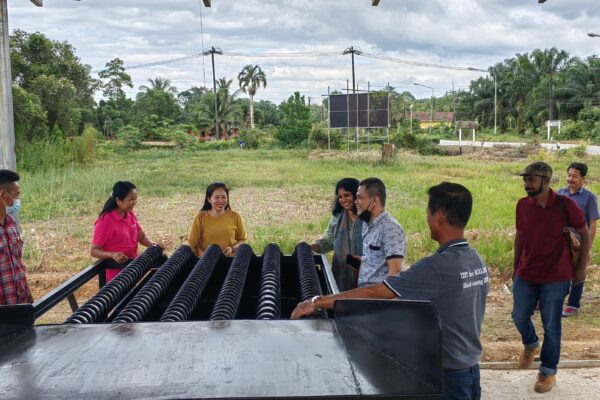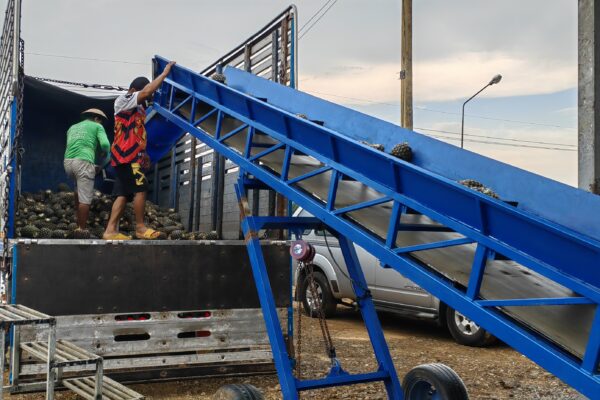The global COVID-19 pandemic has impacted human lifestyles worldwide, particularly in the food market. Despite the challenges faced by pineapple producers in Thailand in meeting the supply, consumer demand for Fairtrade pineapple juice and canned products has drastically increased. The main crop of Trat Fairtrade Pineapple Farmers Group Pineapple is grown in the eastern region of Thailand. Trat Fairtrade Pineapple Farmers Group produces fresh pineapple for processing into juice and canned product by the local factory, Saming Foods Corporation Ltd. However, the factory faced the impact of this crisis when it shut down despite the ability of local farmers to produce pineapples. Consequently, the farmers of Trat Fairtrade Pineapple Farmers Group are compelled to transport their fruit to another factory, Samroiyod Corporation Limited, located about 540 km away from the plantation. This relocation has significantly resulted in higher production costs for the producer organization.
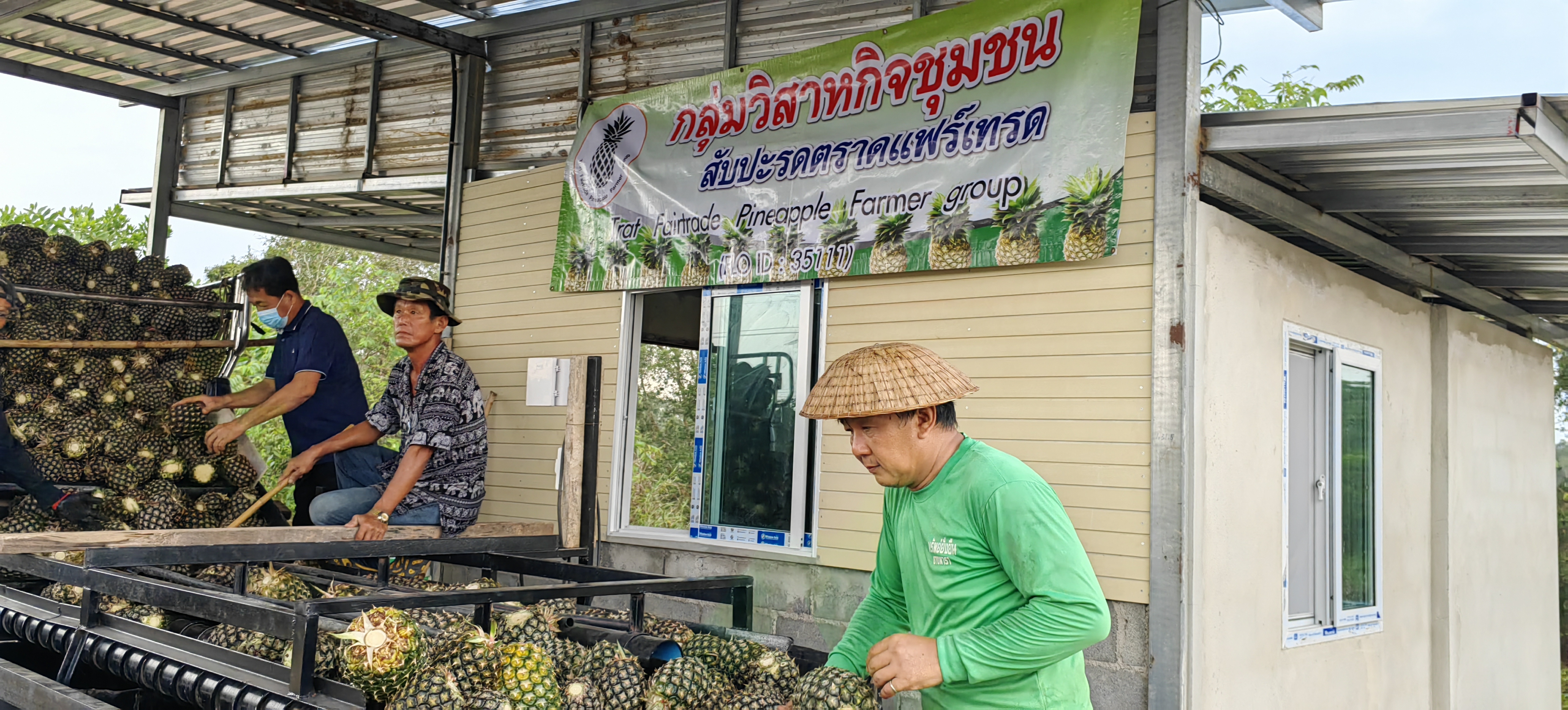
Farmers manually load all harvested pineapple fruit into vehicles at the farm and transport them directly to the factory. At the factory, farmers receive payment based on pineapple size after the grading and sorting process. The factory prefers pineapples larger than 8-10 centimetres in diameter, whereas “baby size” pineapples below 8 centimetres fetch a low price. Damaged fruits are rejected due to animals, insects, disease, or sunburn. Given the distance to the new factory, maximizing profit entails sorting and grading the pineapples before transport. The producer organization sought a grading machine to serve members and farmers, enabling them to deliver only high-quality, properly sized pineapples to the factory and sell the baby-sized ones in the local market.
In May 2023, the Product Quality Control Improvement Project was launched to provide support to the farmers of Trat Fairtrade Pineapple Farmers Group. Funded by Fairtrade Premium and the Subdistrict Administrative Organization, this project has been directly impacting 25 farmers and has an indirect impact on 120 individuals. Its primary objective is to enhance product quality control and uplift the overall resilience of the farming community.
The following work has been completed to date-
- At present, the sorting house construction is underway. Despite a few challenges, the construction is in progress.
- To facilitate the sorting process, a local service provider was hired to manufacture pineapple sorting machines for the sorting house.
- Additionally, efforts are being made to adjust the surrounding area to accommodate pineapple trucks for convenient entry and parking at the sorting house.
- Furthermore, an electricity system is being installed in the sorting building to ensure efficient operations.
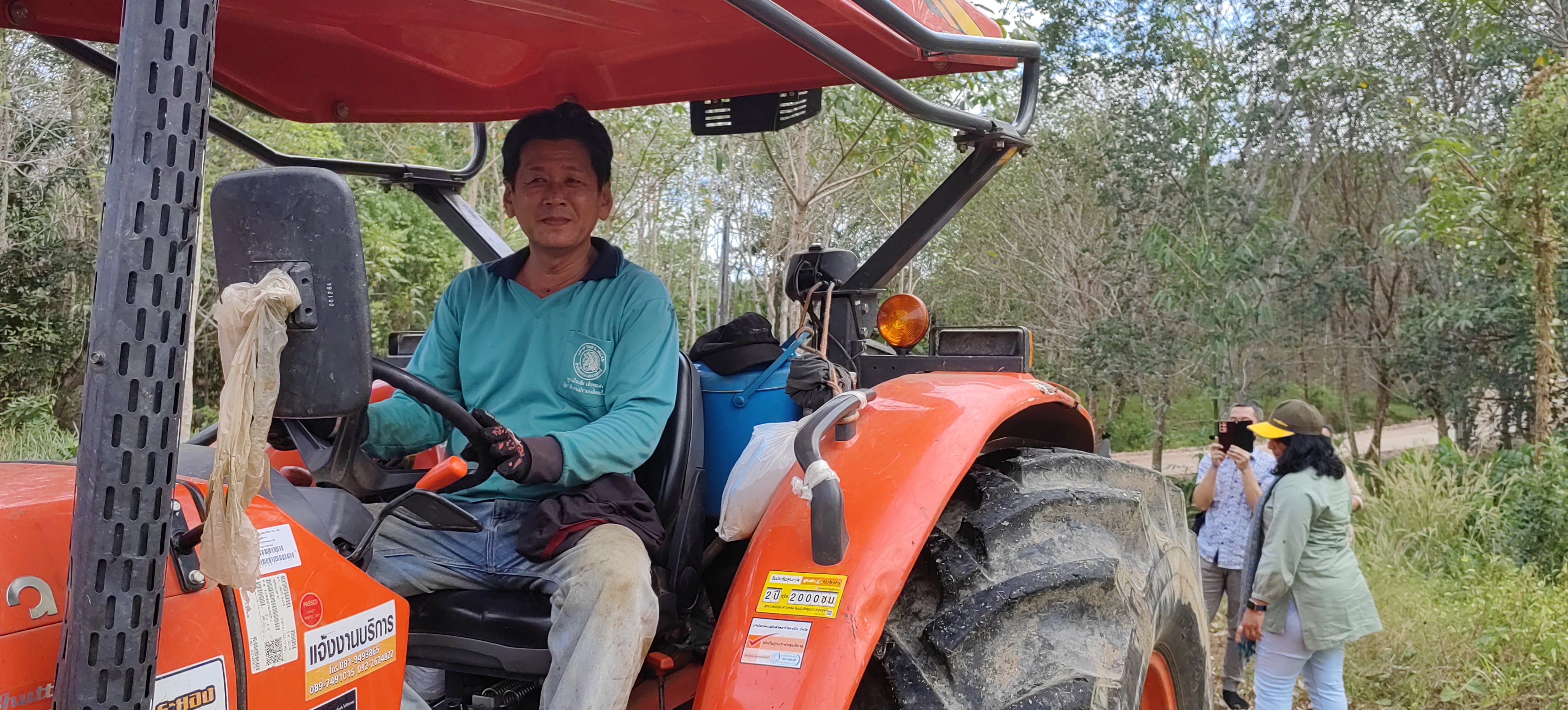
The “Product Quality Control Improvement Project” has had both short-term and long-term impacts on the Trat Fairtrade Pineapple Farmers Group. In the short term, the producer organization has been successfully enhancing its quality control system, ensuring that the pineapples meet the desired standards. This has led to a reduction in the overall costs of production and transportation which makes the process more efficient and cost-effective. Additionally, the grading facility implemented as part of the project has not only benefited the participating farmers but also other farmers in the surrounding area, providing them with access to quality grading services.
In long term, the project has significantly contributed to the viability of the business and marketing strategies of the Trat Fairtrade Pineapple Farmers Group. By implementing improved quality control measures, they have established a strong foundation for a sustainable Fairtrade supply chain. Furthermore, the project’s long-term impact extends to the livelihoods of the farmer members bringing substantial positive outcomes to them and the wider community. Through increased productivity and market competitiveness, the project has improved the overall well-being and economic prospects of the farmers and their families while fostering a more sustainable and prosperous farming community. As the members are able to sustain their businesses and generate a steady income they are provided with the means to support their families and attain a sense of security in their lives.
